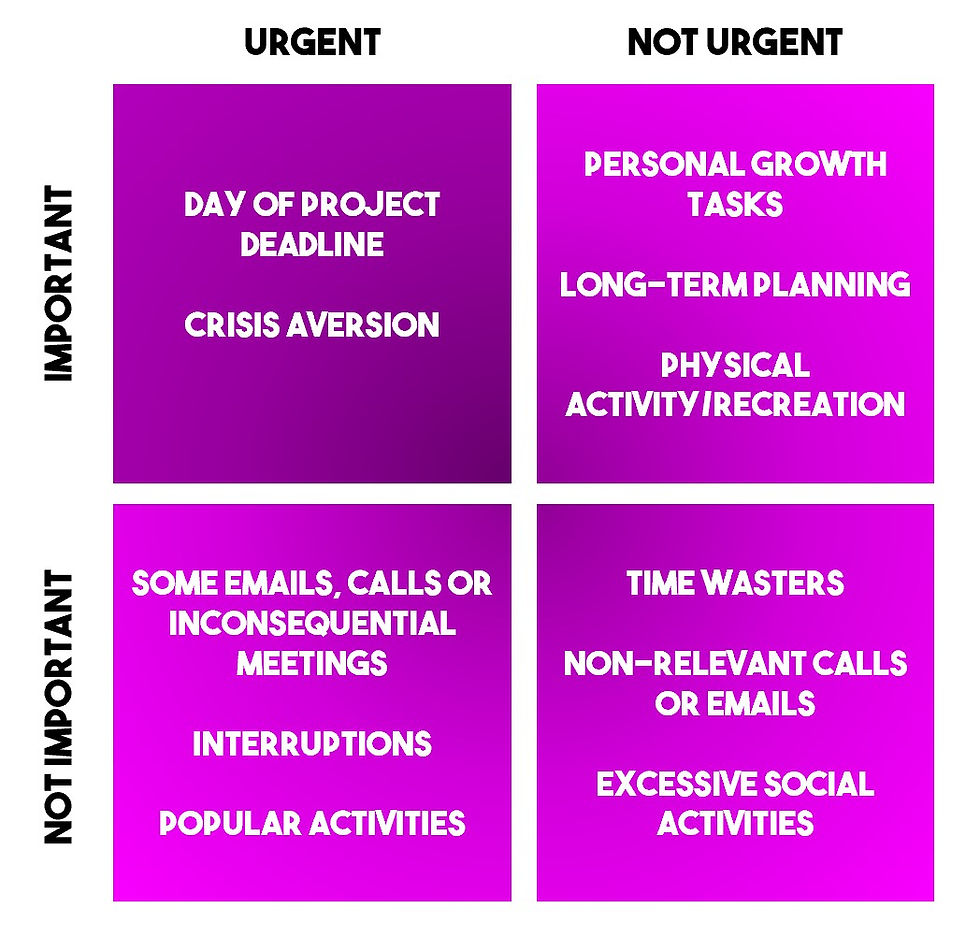How to think differently about productivity
- Nathan Caesar
- Mar 12, 2023
- 3 min read
If you're a normal human being, you're probably guilty of daydreaming about a sun-scorched holiday, as you sit depressingly looking out at a dreary grey morning (why is it still dark- it's 11am?!).
As you head to Skyscanner to find a cheap £20 flight to Malaga, you soon find yourself on an endless scroll through social media- only to feel ashamed that you've wasted your time, rather than starting that self-improvement book that has been gathering dust.
Guilty as charged..
It has become too easy to blame social media on unproductivity, but in 2023, we have become unbelievably lazy as a result of many other factors (online shopping, fast food delivery, automation and working from home, to name a few). So how do we reframe this idea of productivity?

Why do we feel bad when we're 'unproductive'?
Living in an age where everything has to be instant has its downfalls. With such a fast paced way of life, we give ourselves (or are given), tasks to complete at a faster and increased rate. Being unable to consistently meet these high standards leads to the feeling of failure.
Even from a young age, humans are taught to meet deadlines, and are put under increased pressure in the years leading up to exams. If an exam is failed or a deadline is missed; the feeling of not being productive enough, or not using time correctly ensues.
When we do things we enjoy (which may not contribute anything of economic or career value), this may also lead to the feeling of unproductivity. But in reality, we need these moments of downtime to decrease the likelihood of burnout or fatigue.
Others may have this feeling of 'productivity dysmorphia', where no amount of day-to-day completion of tasks will lead to the feeling of achievement. This could also tie into this concept of a productivity paradox, which indicates that we all have a plateau when it comes to peak productivity, and it will not improve despite how much we focus on it.
But what can you do about it?
A quick way to eliminate the feeling of unproductivity is to change the way productivity is framed or thought about: ✅ Focus on your immediate tasks before adding to your list
✅ Enjoy your downtime (stop giving 100%, 100% of the time)
✅ Find the activity that makes you feel productive (writing, reading, fitness, etc)
There is also the tendency to resort to completing mundane tasks first, as a way to appear productive. Realistically, prioritisation should be seen as the vehicle that drives productivity. Spending 15-30 minutes at the start of the day on prioritising the most urgent and important tasks can improve task completion and time management.

'Some people intentionally hide their lack of accomplishment behind the mask of frantic activity.' - Dan Kennedy (Author of 'No B.S. Ruthless Management of People & Profits')
Recently, I have been using the above matrix (adapted from Covey) to ensure my day is structured to get the most important tasks completed first. However, there are many other concepts, including the Pareto principle- which suggests focussing effort on 20% of the most important tasks, whilst delegating or eliminating the other 80%.
The issue with the 80/20 rule is that it can be very regimented, and may be harder to implement (especially when working in a role with tasks that cannot be delegated or avoided). Despite this, it can be useful for short terms goals and narrowing down the focus for the day.
Concluding thoughts Remember, productivity is a skill that will take time to develop and improve, which is why allocating small portions of your daily calendar can help accelerate improvements. Despite what many popular self-help authors, celebrities and influencers say; time management is difficult when it comes to juggling a job, socialising, personal growth activities and leisure. This is why it's more important than ever to identify what productivity means to you.
Comments